Malawi is a small country (18,000 km²), of which 20% is covered by Lake Malawi. This country is an undiscovered gem. The Malawian countryside is stunningly beautiful and varies from high mountain plateaus, rivers, waterfalls, valleys, and forests. Lake Malawi is an untouched paradise, miles of idyllic pristine beaches; interspersed with large boulders, palm trees, and small coves
Enlarge
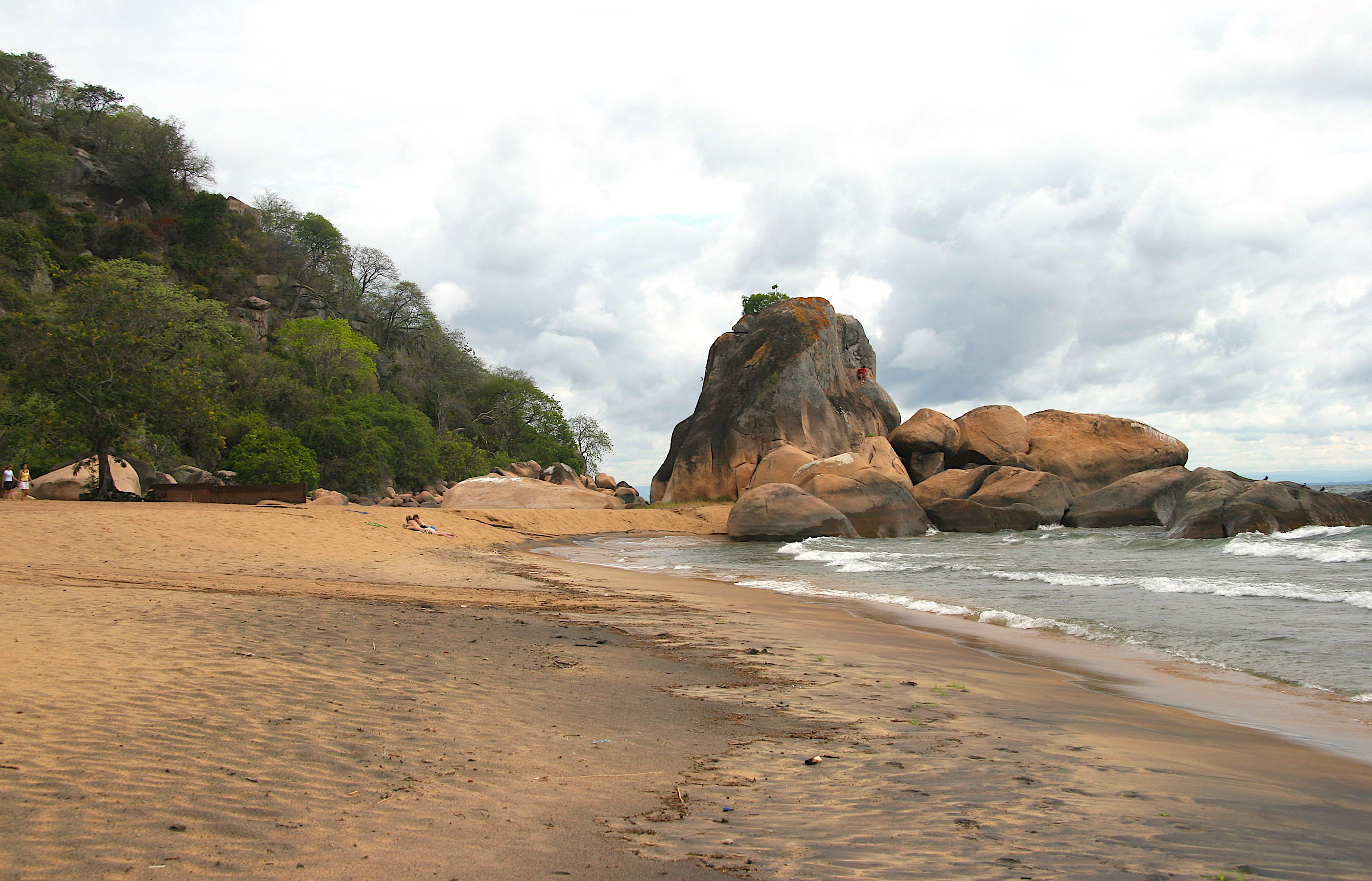
Adventurouspirits
The clear water is safe and a warm 220C -270C. It is the 9th largest freshwater lake the in the world and the 3rd largest in Africa.
Enlarge
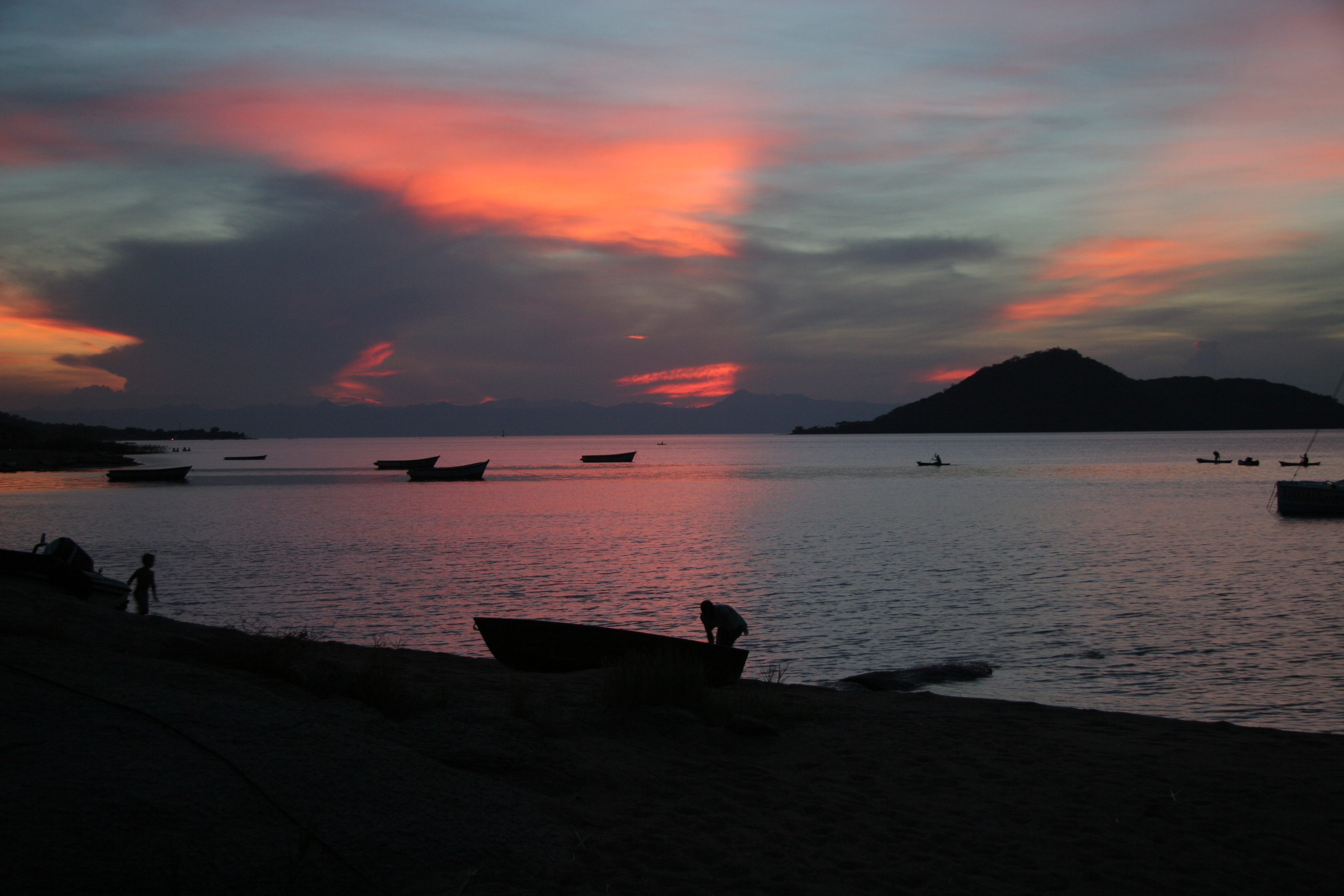
Adventurouspirits
Enlarge
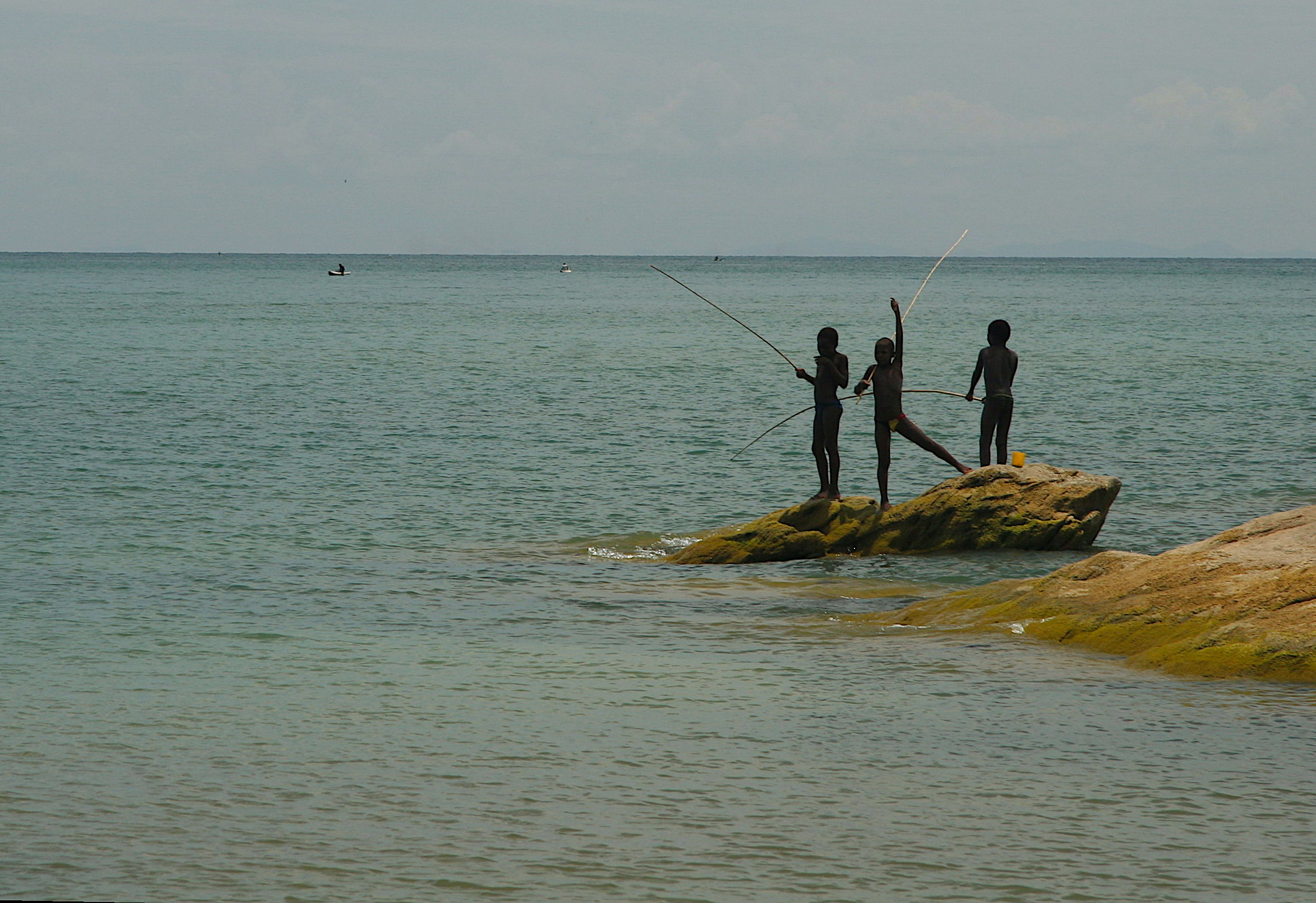
Adventurouspirits
Enlarge
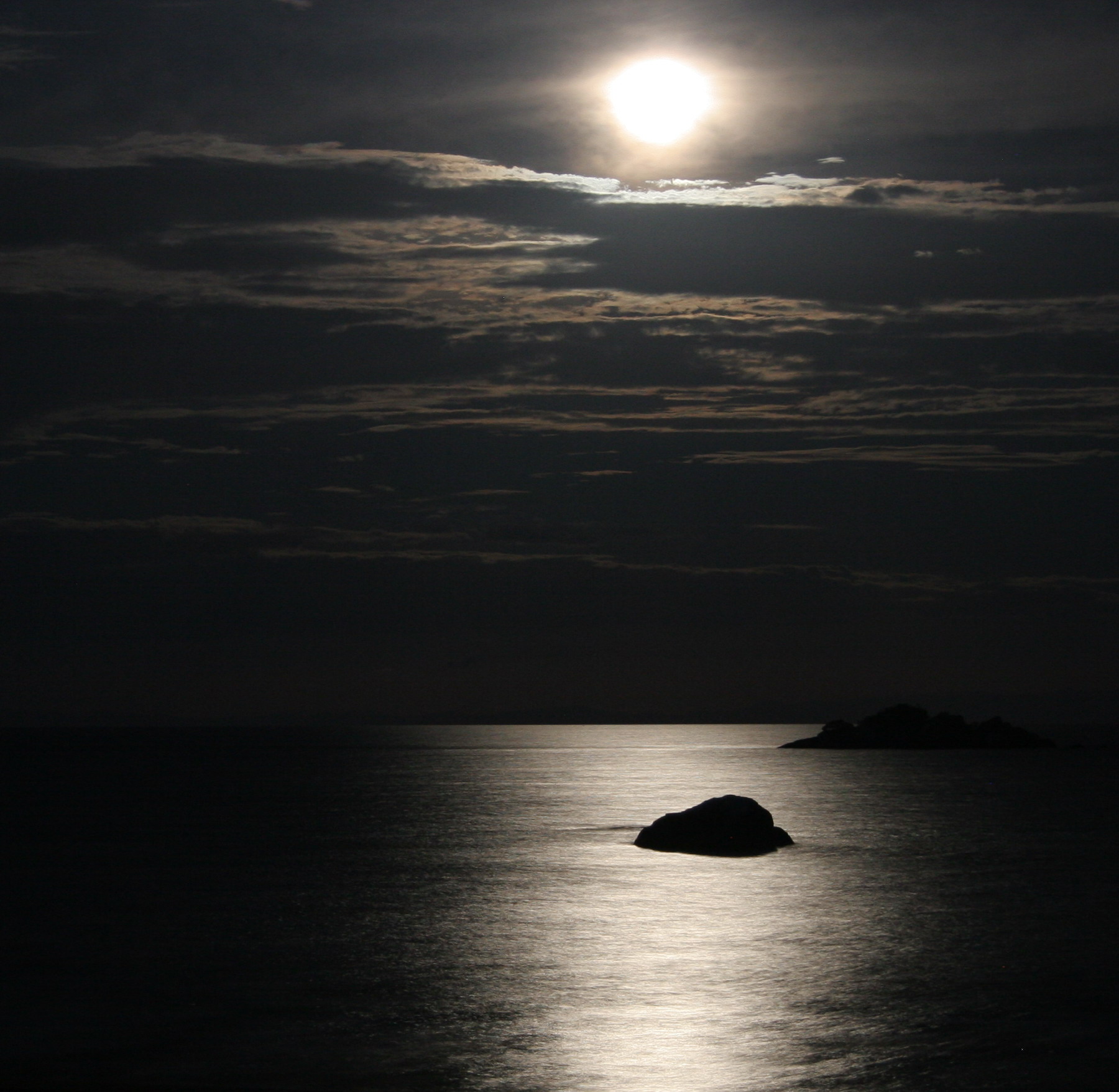
Adventurouspirits
The lake is the source of livelihood for most Malawians, who live in traditional villages, a very basic existence in simple houses with grass roofs. It is for most a subsistence life of fishing and a little agriculture. Currently it is the tomato, onion, potato, mango, banana, and pawpaw season and everywhere we went they were for sale, and they taste great really sweet and juicy. Most of the actual trading takes place at taxi stands, bus stops, and village markets. When the overloaded minibuses arrive at a stop, the hawkers would rush to the bus, and grass platters loaded with colourful food is held high to the open windows where the weary passengers make their purchases. A bustle of shoving, pushing, and noisy bargaining, repeated with every new arrival.
Enlarge
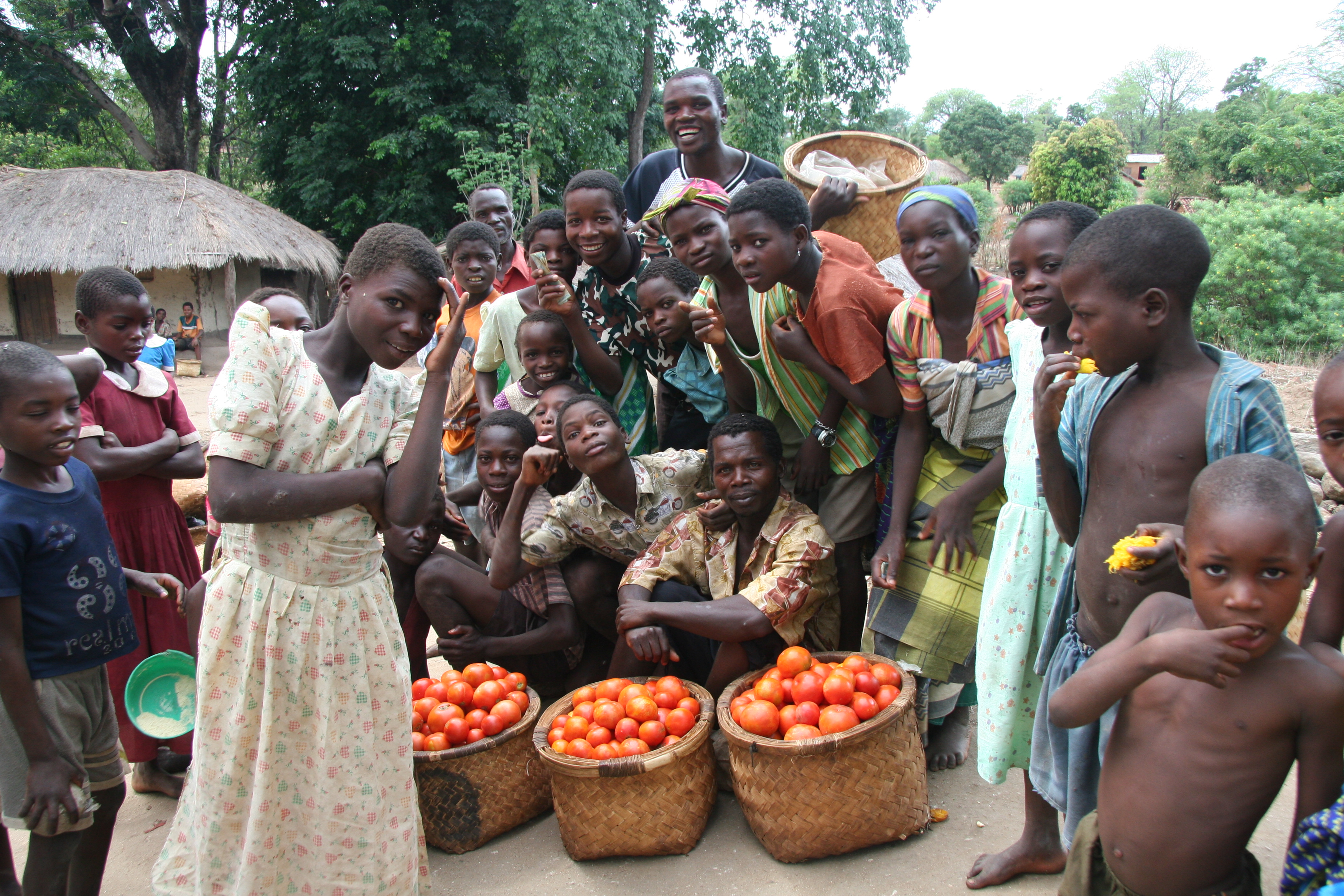
Adventurouspirits
Zomba is a charming little town, with many old colonial buildings from the past, which lies in the shadow of the spectacular Zomba plateau. It has beautiful large shady trees and is now home to Malawi University. While passing through, we spotted a sign with a Canadian flag.
Enlarge
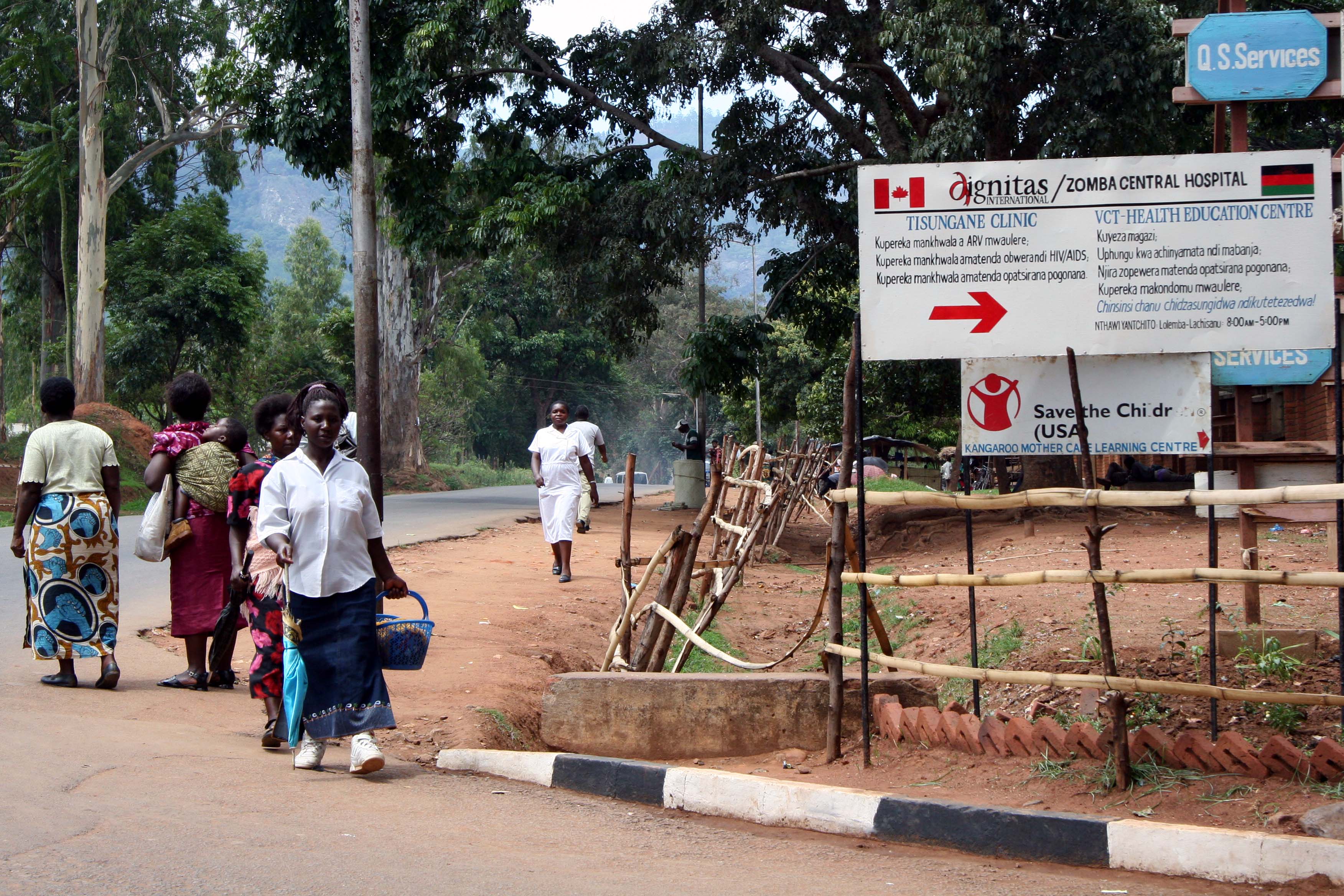
Adventurouspirits
Surprised and intrigued and we stopped to find out who the Canadians were and what projects they were involved in. Directed by the villagers to the local hospital we met a young Canadian doctor and graduate of the University Of Calgary Medical School. Kathy is working for the Canadian aid agency, Dignitas International. We were given a tour of the hospital and were touched by the caring and compassion shown to the people by the hospital staff. Working conditions are very difficult and resources very limited but despite all the challenges, Dignitas International is having a significant and positive impact on the health of the villagers of Zomba.
Lake Malawi is reputed to be the world’s best freshwater diving, so we headed for the Scuba Shack at Cape MacClear to organize some Scuba dives for ourselves. Climbing into a little boat, we were informed by the dive master our first dive would be about 60 feet in depth and would be mainly over and through boulders, and our second dive would be to visit the amazing world of the cichlids.
Enlarge
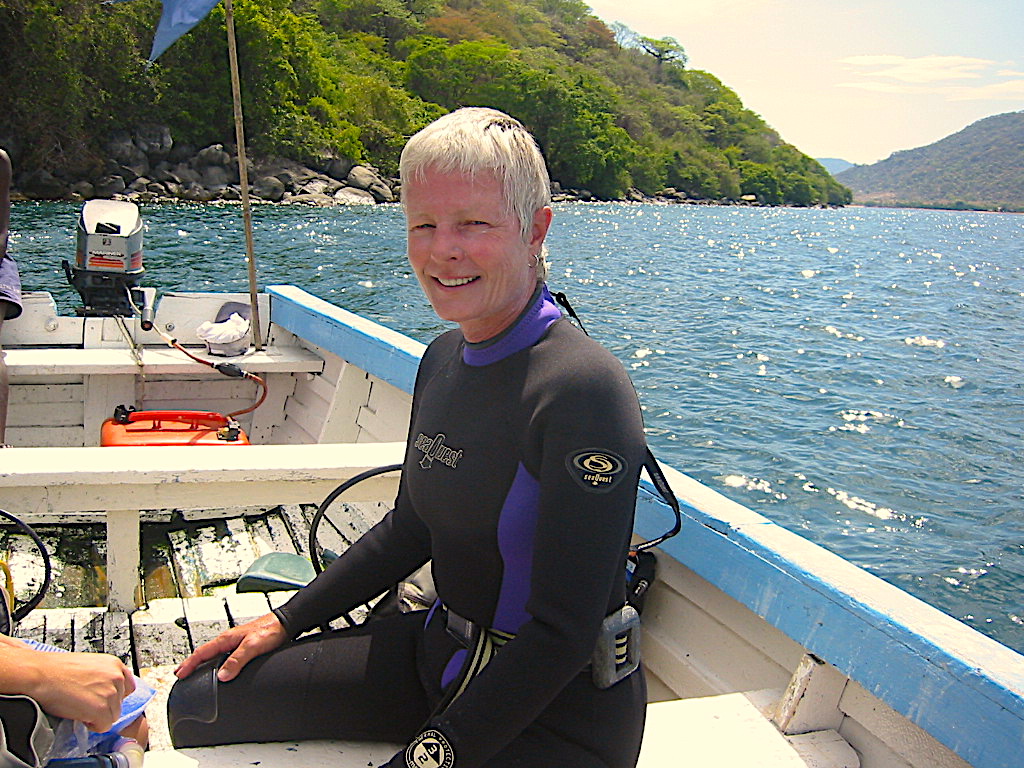
Adventurouspirits
Snorkelling and diving in Lake Malawi has been compared to diving in a fish tank because one swims amongst thousands of cichlids, which are a beautiful colourful little fish. Lake Malawi is a tropical freshwater lake with no dangerous currents and no dangerous fish so we felt excited as we descended into this magical world. Tom has been diving for over 30 years off the coast of Southern Africa, the Caribbean, the Great Barrier Reef, and North America and nowhere has he seen so many tropical fish in a single spot. Lake Malawi is indeed a very crowded aquarium and home to over 500 endemic species of cichlids, found nowhere else in the world. Every Scuba diver should be fortunate enough to experience diving in the lake at least once; it is diver’s paradise. The Cape MacClear peninsula in Lake Malawi has been declared a World Heritage Site to protect these extraordinary fish. If you would like to find out more about them, the BBC has an excellent documentary on these remarkable cichlid fish. We met Stewart Grant, an eccentric ex colonial British civil servant and wonderful man who has a cichlid breeding operation and ships these fish all over the world. The visit to his operation was very interesting.
Malawians are very friendly and helpful people. Everywhere we went they engaging and a pleasure to spend time with.
Enlarge
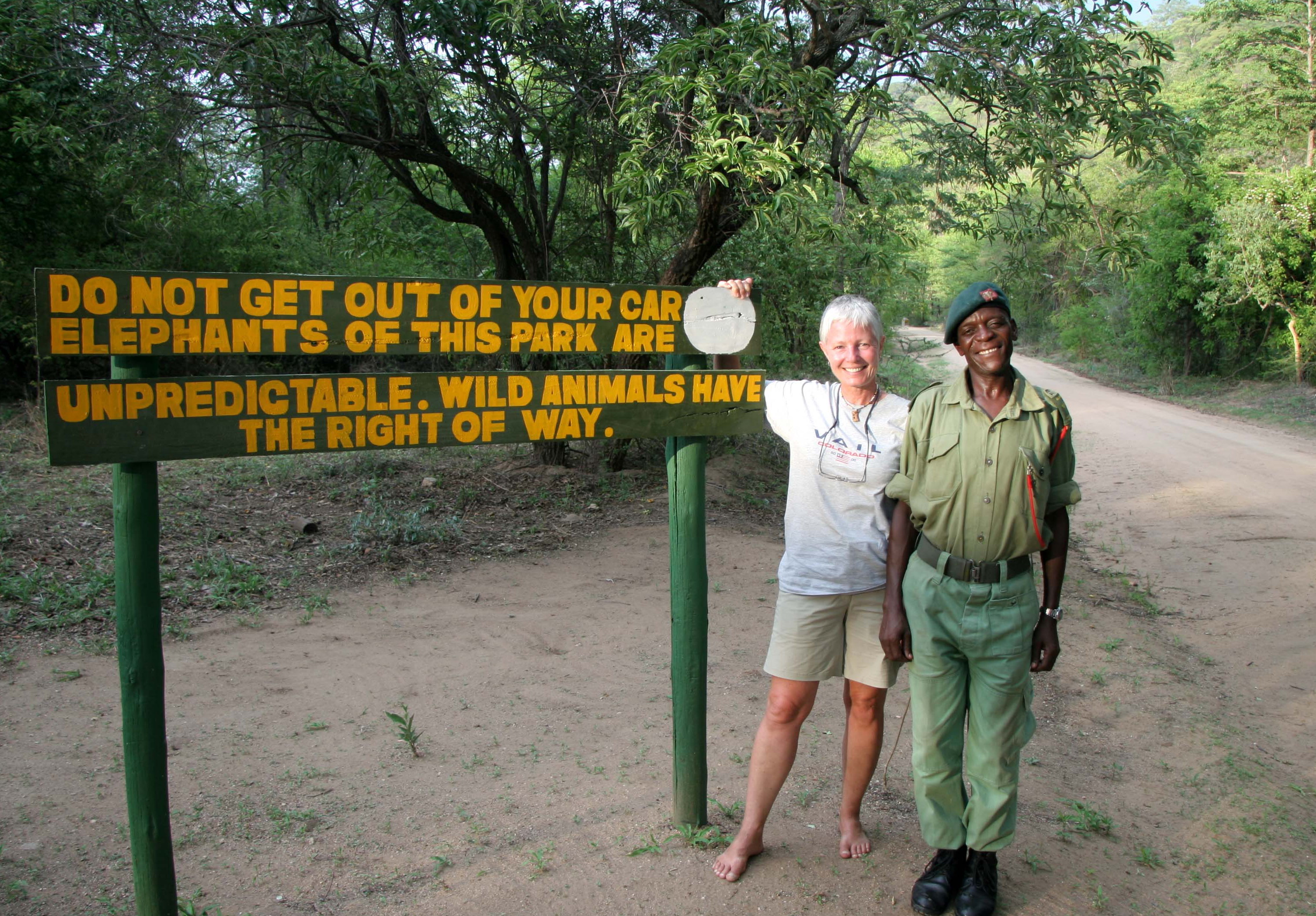
Adventurouspirits
Enlarge
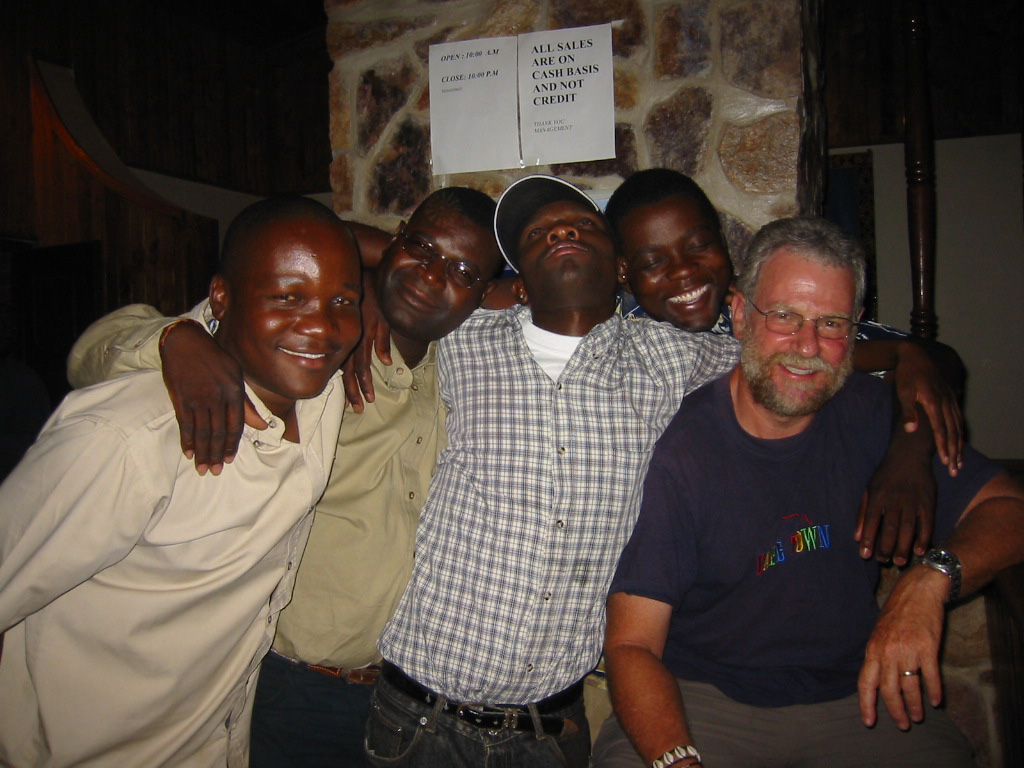
Adventurouspirits
Many of them are skilled wood carvers.
Enlarge
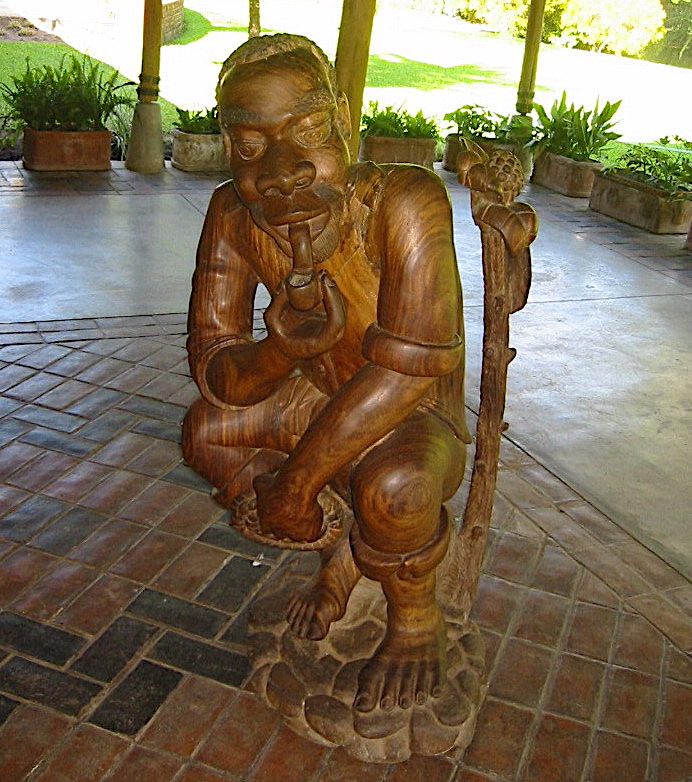
Adventurouspirits
At the Mua Mission we watched as they skillfully produced many wonderful works of art using their artistic talents and local wood
They put these incredible woodworking skills to roadside commercial use.
Enlarge
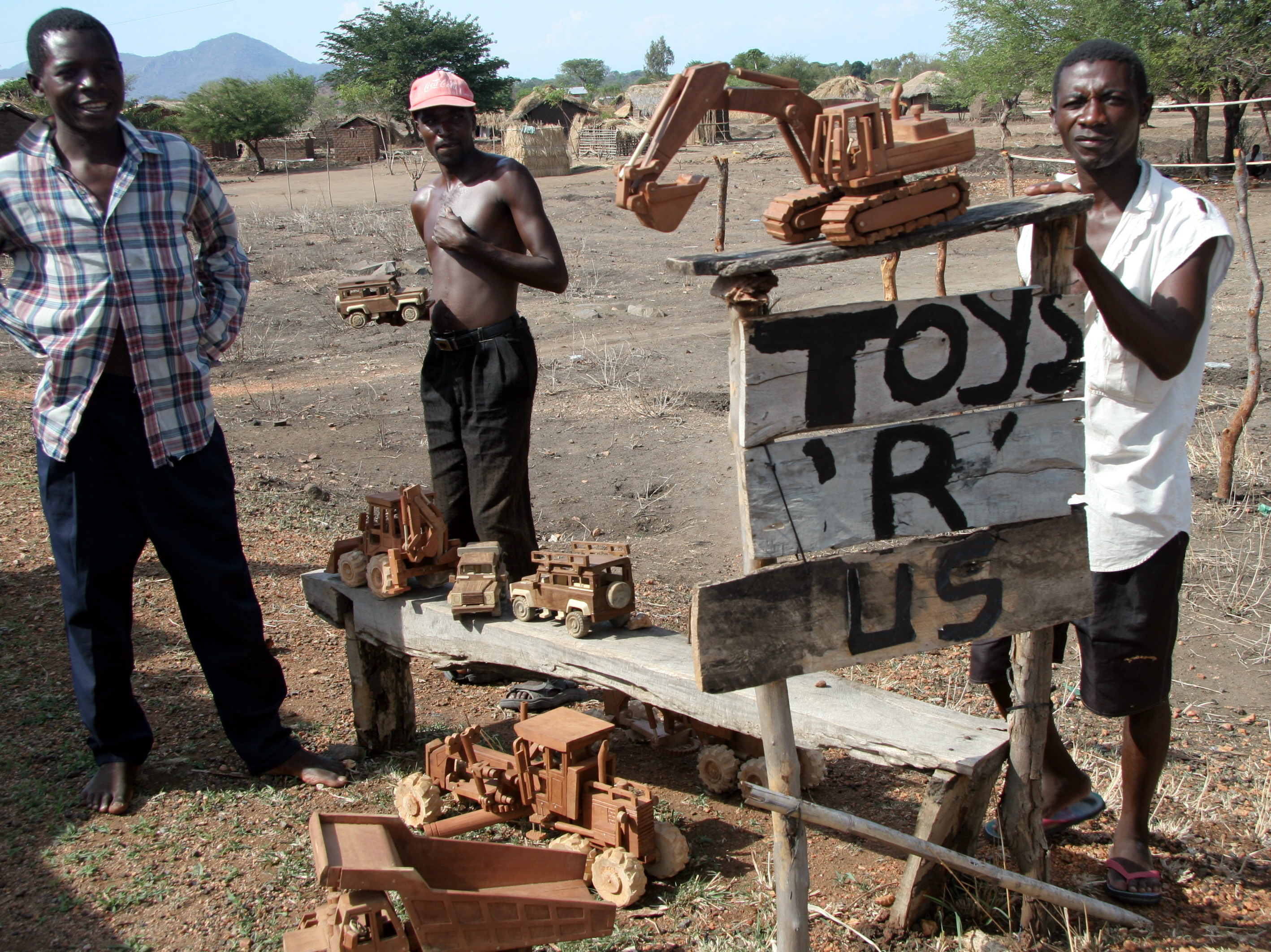
Adventurouspirits
We drove to the the top of the Nyika Plateau, 2000ft above the Rift Valley floor. Our destination was Livingstonia a mission established by the famed explorer David Livingston. The road up has 22 switchbacks, is narrow and challenging.
Enlarge
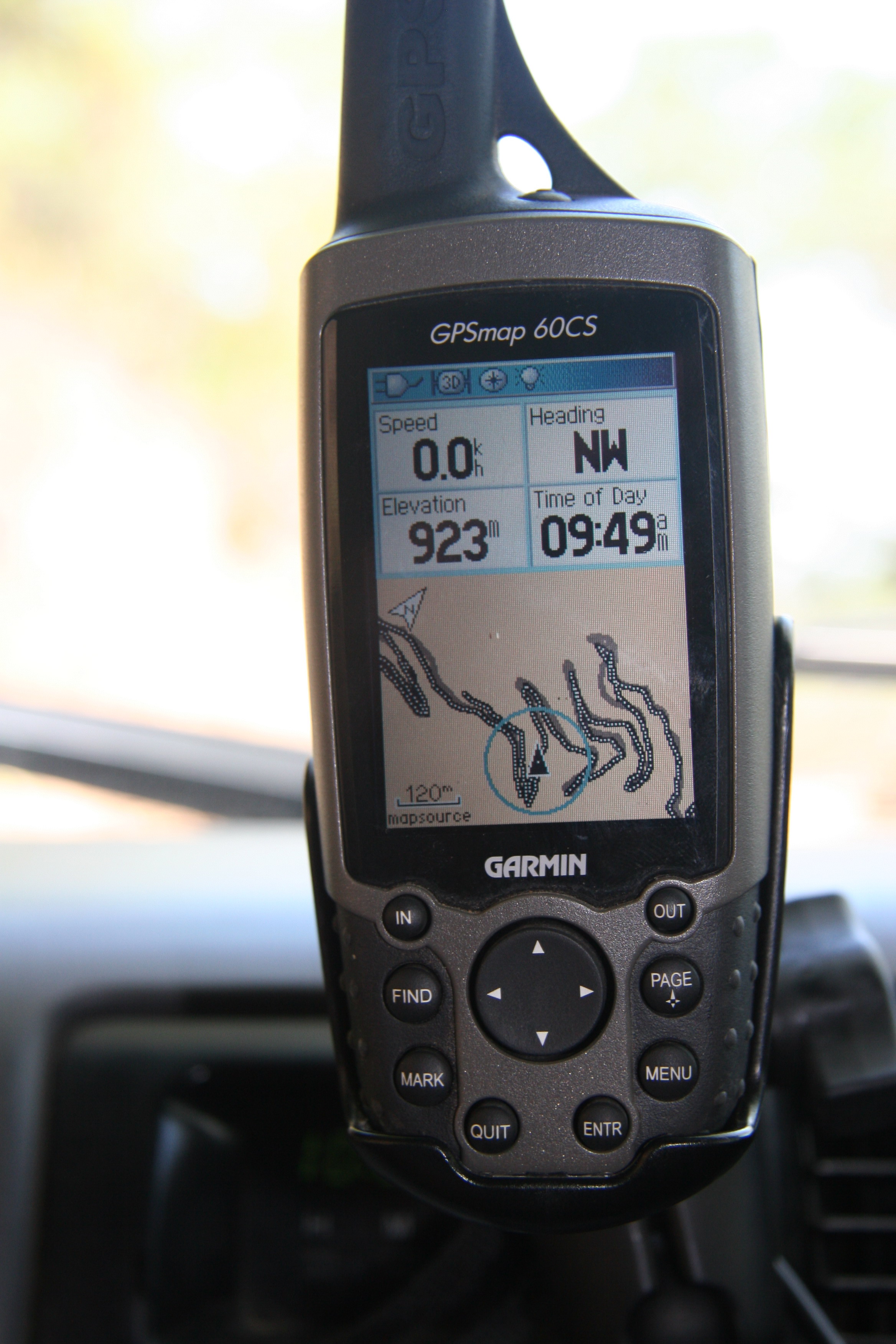
Adventurouspirits
Enlarge
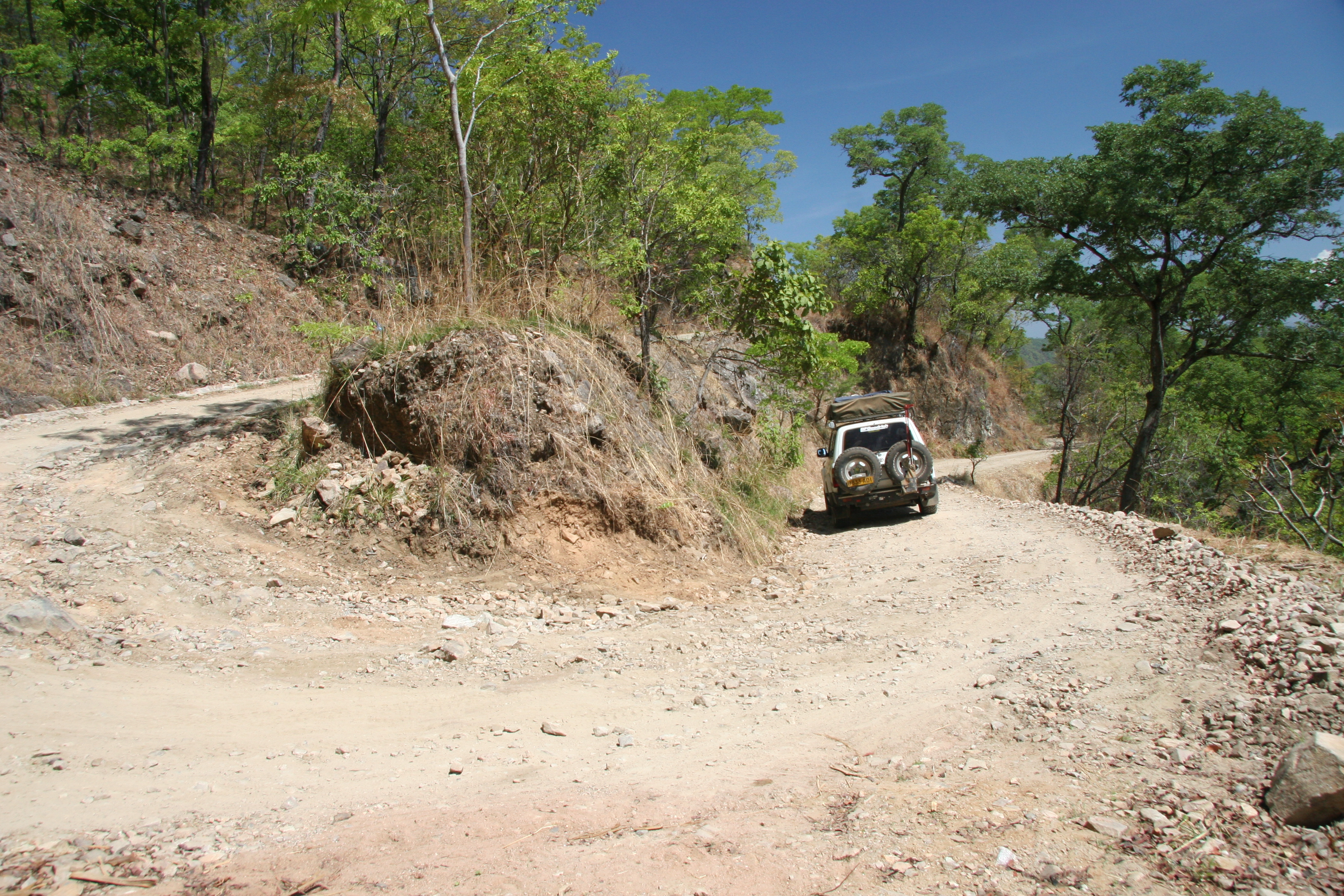
Adventurouspirits
Watch what happens when you meet oncoming traffic on the narrow, hair-raising road up to Livingstonia.
Heading North along we noticed what looked like smoke from a fire in the distance. Turns out these black columns are Lake flies emanating from the warm waters of Lake Malawi.
Enlarge
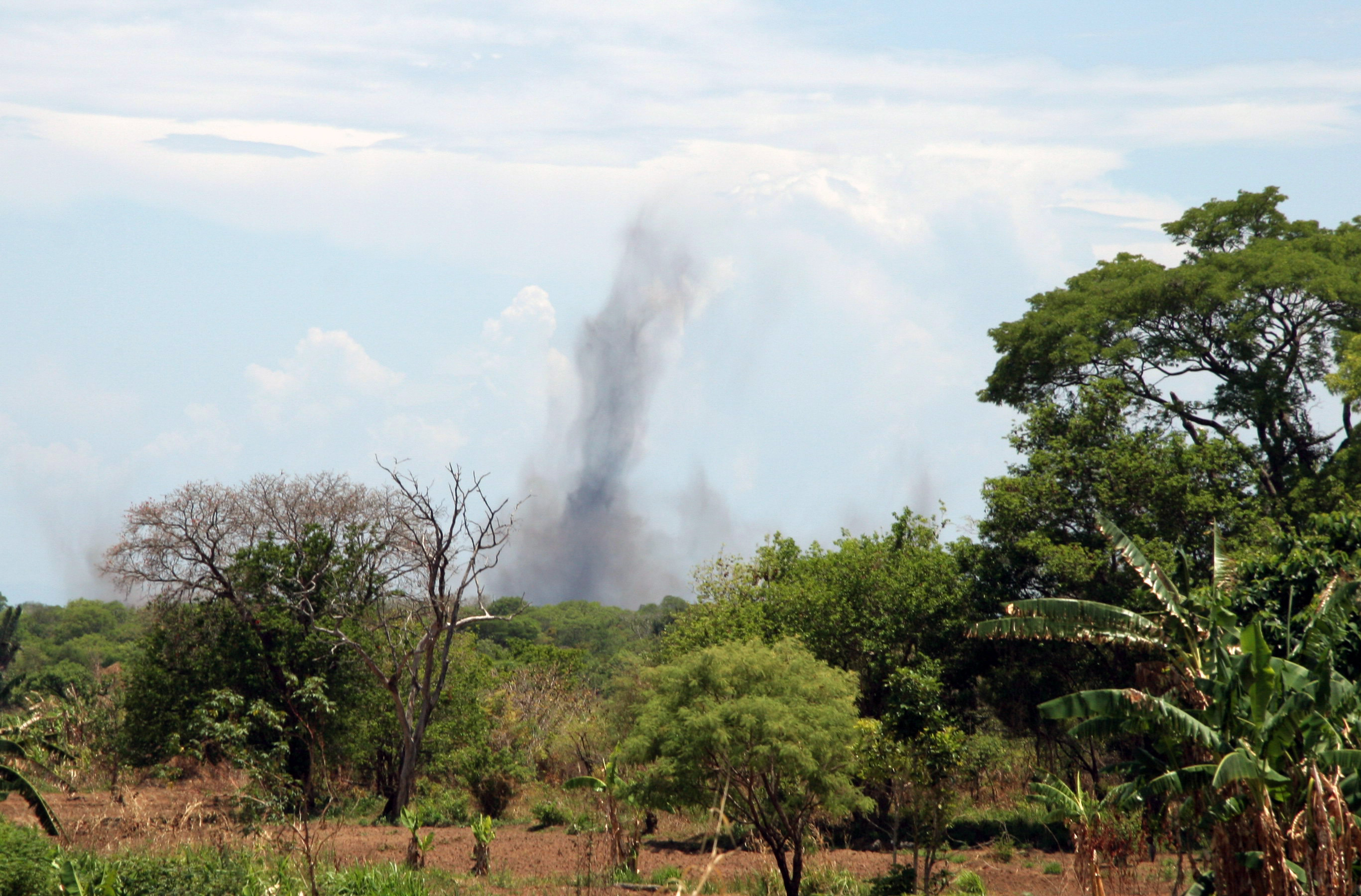
Adventurouspirits
Stopping for lunch at a roadside lodge we had no difficulty in finding the toilet.
Enlarge
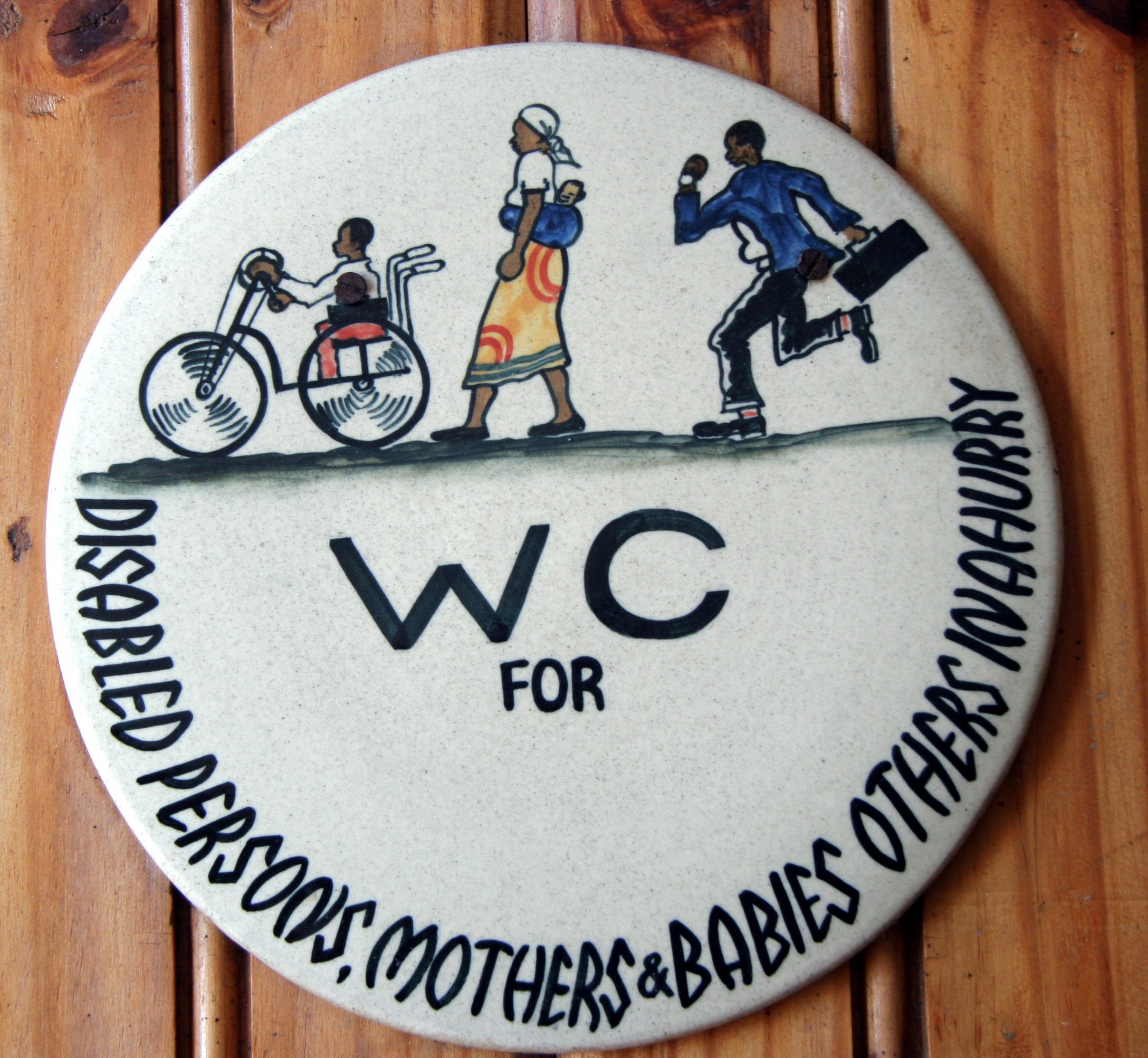
Adventurouspirits
It was difficult to leave the wonderful warm people, the incredibly beautiful Lake Malawi and its surrounding rift valley but it was time to enter Tanzania on our journey towards Cairo. Malawians dream big even if they don’t have the resources.
Enlarge
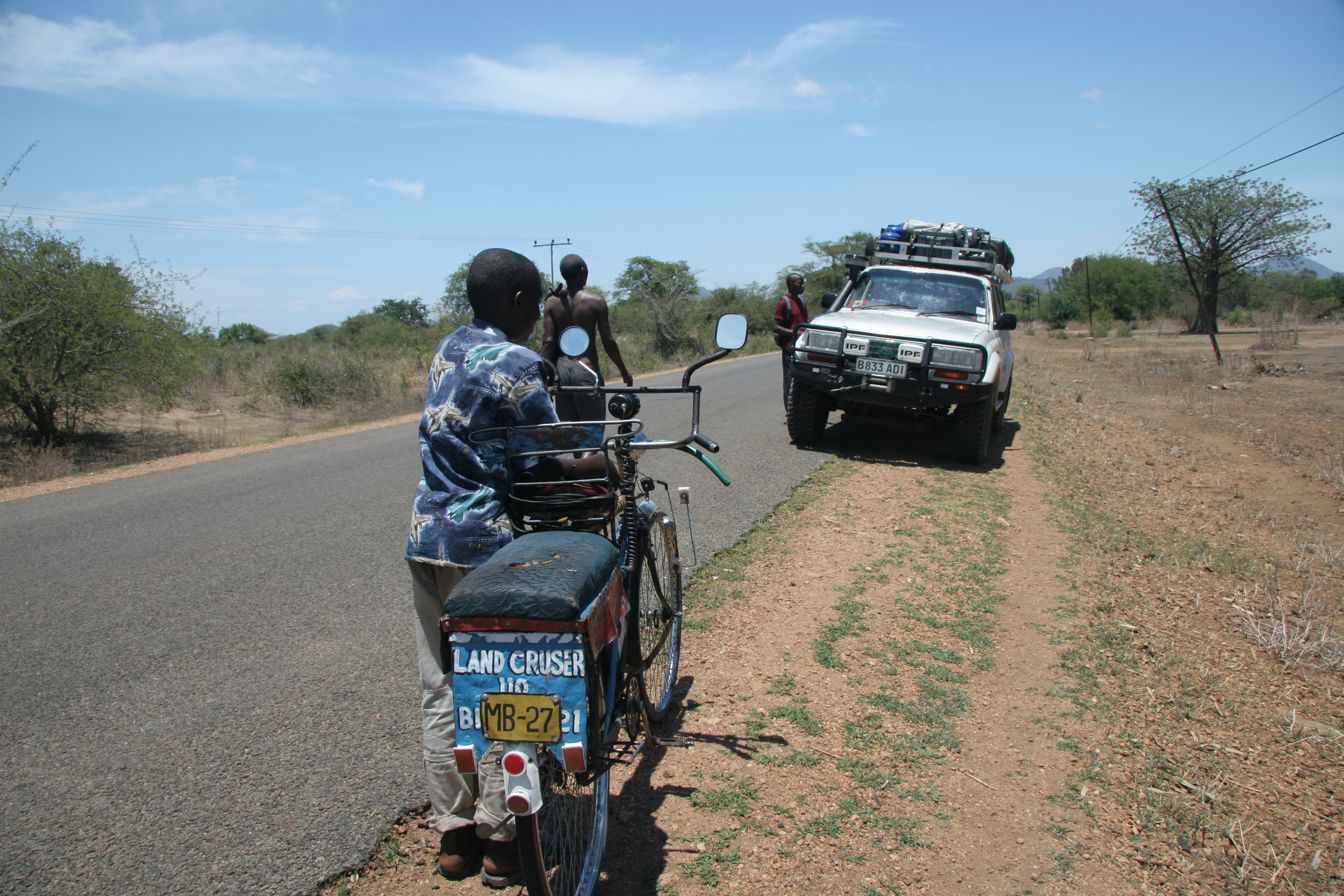
Adventurouspirits
